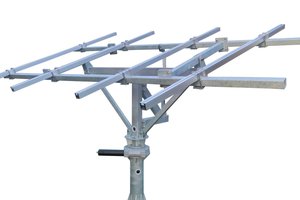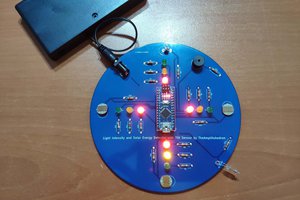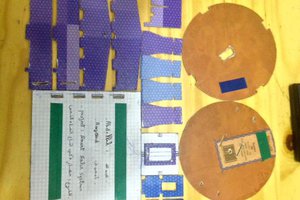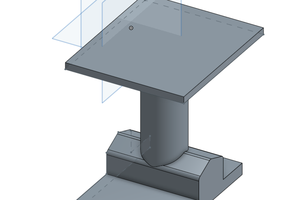Introduction
Enhance your solar energy system with an Arduino-based solar tracker. In this guide, you’ll learn how to build a solar tracker that optimizes your solar panels’ efficiency by following the sun’s path throughout the day. Whether you’re a beginner or an experienced DIY enthusiast, our step-by-step instructions will help you create a functional and efficient solar tracker. Explore the intersection of renewable energy and electronics, and take a significant step towards sustainable living with our comprehensive Arduino solar tracker project.
FOR FULL PROJECT:
https://electronicsworkshops.com/2024/07/01/solar-tracker-using-arduino/
Working Principle
Detection of Sunlight
The light sensors (LDRs) detect the intensity of sunlight from various directions. Each LDR provides an analog signal to the Arduino based on the amount of light it receives.

Signal Processing
The Arduino reads the analog signals from the LDRs. It compares the signals to determine which direction has the highest light intensity.
Decision Making
Based on the comparison, the Arduino decides how to move the solar panel. For example, if the east-facing sensor detects more light than the west-facing sensor, the Arduino will command the motors to move the panel eastward.
Panel Adjustment
The Arduino sends signals to the servo or stepper motors to adjust the solar panel’s position. In a single-axis tracker, the panel moves either horizontally or vertically. In a dual-axis tracker, the panel can move in both directions to track the sun’s path more precisely.
Continuous Adjustment
This process of detection, signal processing, decision making, and adjustment continues throughout the day. The solar tracker constantly aligns the solar panel to face the sun directly, optimizing energy capture.
Circuit Diagram


Order Directly from PCB WAY
I have already uploaded all these required manufacturing files in PCBWAY website. You can easily go to the below link and place you order, and get your Own Home Automation PCB manufactured from one of the best pcb manufacturer PCBWAY
Benefits of Solar Trackers
Increased Efficiency: By keeping the solar panels perpendicular to the sun’s rays, a solar tracker can boost energy production by 20-30%.
Optimized Energy Capture: Trackers ensure maximum exposure to sunlight from dawn to dusk.
Cost-Effective: Though the initial investment is higher, the increased energy output can reduce the payback period for solar panel installations.

Conclusion
Solar trackers enhance the performance of solar panels by dynamically adjusting their orientation to follow the sun’s path. Using an Arduino microcontroller, light sensors, and motors, a solar tracker continuously optimizes the angle of the panels, resulting in significantly higher energy production. This technology is a key component in making solar energy systems more efficient and sustainable.
FOR FULL PROJECT:
https://electronicsworkshops.com/2024/07/01/solar-tracker-using-arduino/
 electronicsworkshops
electronicsworkshops

 Kutluhan Aktar
Kutluhan Aktar
 MICRO Technology MAKER
MICRO Technology MAKER